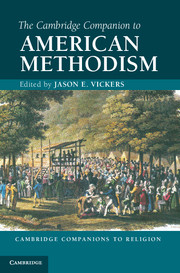I recently gave a talk at United Theological Seminary on United Methodist Beliefs. The following constitutes part of the introduction to that talk. I welcome your comments, questions, agreements, and disagreements.
Imagine you have
before you two people: The first is 35 years old, an up and coming scientist
with an impressive c.v. and an IQ in the top two percent of all people alive
today. This person was born and lives in the United States, votes, pays her
taxes, and is politically active. She has made considerable contributions in
her field, gives public lectures on interesting topics, makes lots of money, gives
some of it to Greenpeace and some to Habitat for Humanity, and is generally
considered the envy of all who know her.
The second person was born and lives in Nicaragua. He is 55
years old. For reasons unknown, he never developed intellectually past the age
of eighteen months. He is at the constant mercy of his caregivers and is
utterly dependent upon them. He has no chance at schooling, a career, marriage,
or children. He lives in conditions of poverty, and draws upon precious
community resources without contributing back into the community’s economy.
Is one of these people more valuable than the other? Now, if
you are a person of faith, I’m going to take it that you know that the answer should be “no.”
But do you know why the answer should be “no"? You see, there are
many people today who will say “yes.” They might not say it out loud, but they
would think it nonetheless. They rate human value based upon utility. People
are valued because of what they can do, what
they can contribute to society. This way of viewing people, of course, depends upon some idea, normally unexamined, of what constitutes a contribution.
But for a Christian, this will never sit right. We know,
after all, that human beings are not just primates with large brains, not just
animated water sacks walking around until our vital organs stop functioning,
not just producing and consuming units, not just means to an end. Human beings
are the pinnacle of God’s creation. We possess a certain quality—createdness.
And we are not simply created, but created in the image of God, whatever that
may mean. And as soon as we begin to speak in these terms, we begin to
articulate what is called a “theological anthropology.”
Now we’re beginning to talk about human beings in a
different, and very particular, way. We’re talking about human beings in light
of the set of claims we make about God, about God’s action in the world, God’s
sacrifice for us on the cross, and the resurrection of Jesus Christ from the
dead.
In other words, our thoughts about who and what human beings
are take place within a broader network of theological claims. So how we think
about God comes to bear on the ways in which we think about people, which, in
turn shapes how we think about human relationships, the use of money, various
political issues, who matters, and who, if anyone, does not.
We all have a way of
looking at the world, but not all ways of looking at the world are equally
virtuous. Not all ways of looking at the world are equally true. And I’m
convinced that the most virtuous and truest way of looking at the world is
through the lens of the creedal faith of the church. The Holy Trinity brought
all things into being, created humankind, mourned our rebellion, became
incarnate in Jesus Christ, taught us how to live, bore the sins of the world on
the cross, rose bodily from the dead, and will come again in glory. That narrative—if
you internalize it—will shape the way you view everything.

